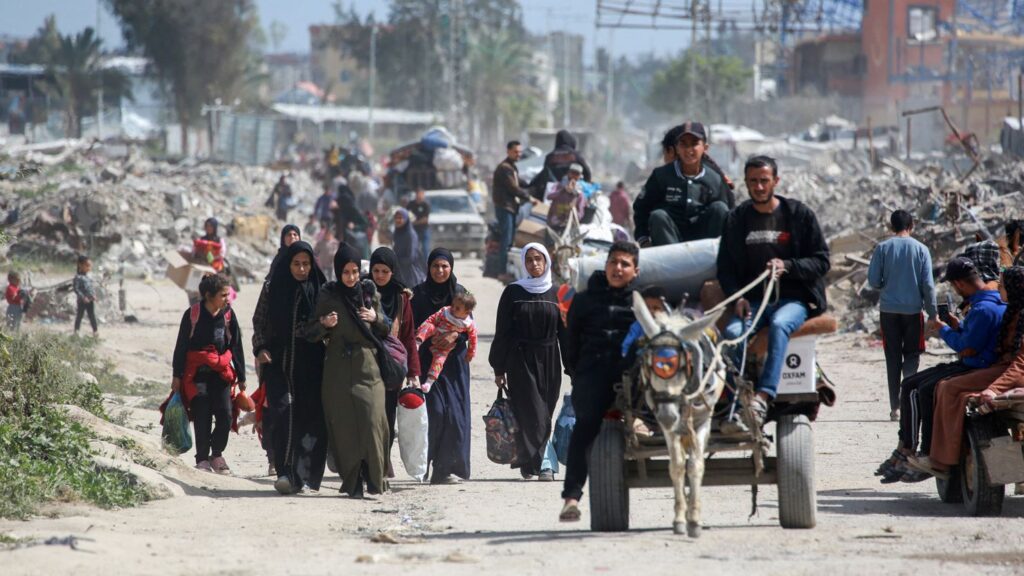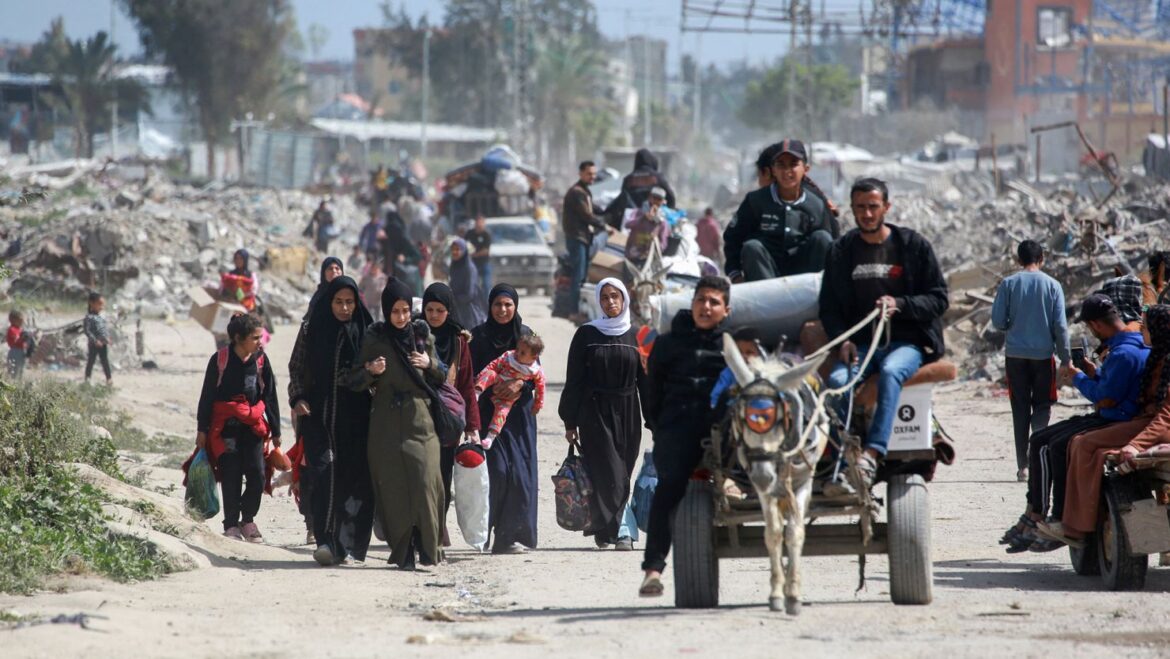In a significant move, Israel’s security cabinet has approved a controversial proposal that would facilitate the emigration of Palestinians from Gaza, a decision that has sparked intense debate. Critics argue that the plan, which some perceive as encouraging mass displacement, could be viewed as ethnic cleansing. This plan, which aims to offer Palestinians in Gaza the option to voluntarily relocate to third countries, has been endorsed by Israeli Defense Minister Israel Katz and was presented as aligning with US President Donald Trump’s vision.
The approval came on Sunday, March 23, under the endorsement of Israeli Finance Minister Bezalel Smotrich. This decision marks a dramatic shift, particularly given Israeli Prime Minister Benjamin Netanyahu’s earlier promises not to displace Gaza’s civilian population permanently. The approval is seen as a significant departure from previous commitments, especially considering the humanitarian crisis Gaza faces amid ongoing conflict.
Proponents of the plan argue that the emigration would be voluntary, compliant with both Israeli and international law. However, many critics believe that any large-scale displacement of Gaza’s population amidst the ongoing war would qualify as ethnic cleansing, which is classified as a war crime under international law.
The United Nations’ emergency relief official, Martin Griffiths, has called Gaza “uninhabitable,” emphasizing the daily risks the population faces to their survival. Griffiths described the dire situation in the enclave, where basic living conditions have become increasingly difficult due to continuous threats to life.

Also read: JD Vance Threatens Denmark with Greenland Invasion: Shocking Statement
According to the Defense Ministry’s statement, the plan aims to establish an administration within the ministry to manage and facilitate the voluntary movement of Gaza residents. This would involve setting up designated crossing points and routes for the safe exit of people who wish to relocate. The infrastructure for such a move would include pedestrian checks and other security measures to ensure the safe movement of individuals.
Israeli officials have framed this plan as a realization of Trump’s earlier vision, which involved transforming Gaza into a “Middle Eastern riviera,” with Palestinian residents relocated to neighboring countries. This vision was initially considered extreme but has gained traction, with discussions of mass emigration now appearing more openly in Israeli political discourse.
Palestinian leaders have strongly opposed any form of displacement. Palestinian Authority Minister of State for Foreign Affairs, Varsen Aghabekian Shaheen, stated that Palestinians are committed to staying in their homeland and will not move. Despite this, Israeli officials like Katz have reiterated that the plan is in line with the United States’ objectives, as outlined by Trump.
In recent statements, Trump seemed to backtrack on his earlier comments about displacing Palestinians. He clarified that “nobody is expelling any Palestinians,” while Steve Witkoff, the US special envoy to the Middle East, emphasized that the US initiative for Gaza’s reconstruction was not intended as an “eviction plan,” but rather a strategy to reshape the political landscape.
This proposal raises significant questions about Israel’s future policies in Gaza, especially following Netanyahu’s 2024 statements that Israel had no intention of permanently occupying Gaza or displacing its civilian population. Despite these reassurances, the approval of the emigration plan signals a potential shift in Israel’s stance, with discussions of a permanent Israeli presence in Gaza becoming more open.
As the situation continues to evolve, the international community watches closely to see how this plan is implemented and whether it will have lasting implications for Gaza’s civilian population and regional stability. For more on the approval and its implications, read this CNN article on the emigration proposal.




3 thoughts on “Israel Approves Controversial Plan for Palestinian Emigration from Gaza”
Comments are closed.